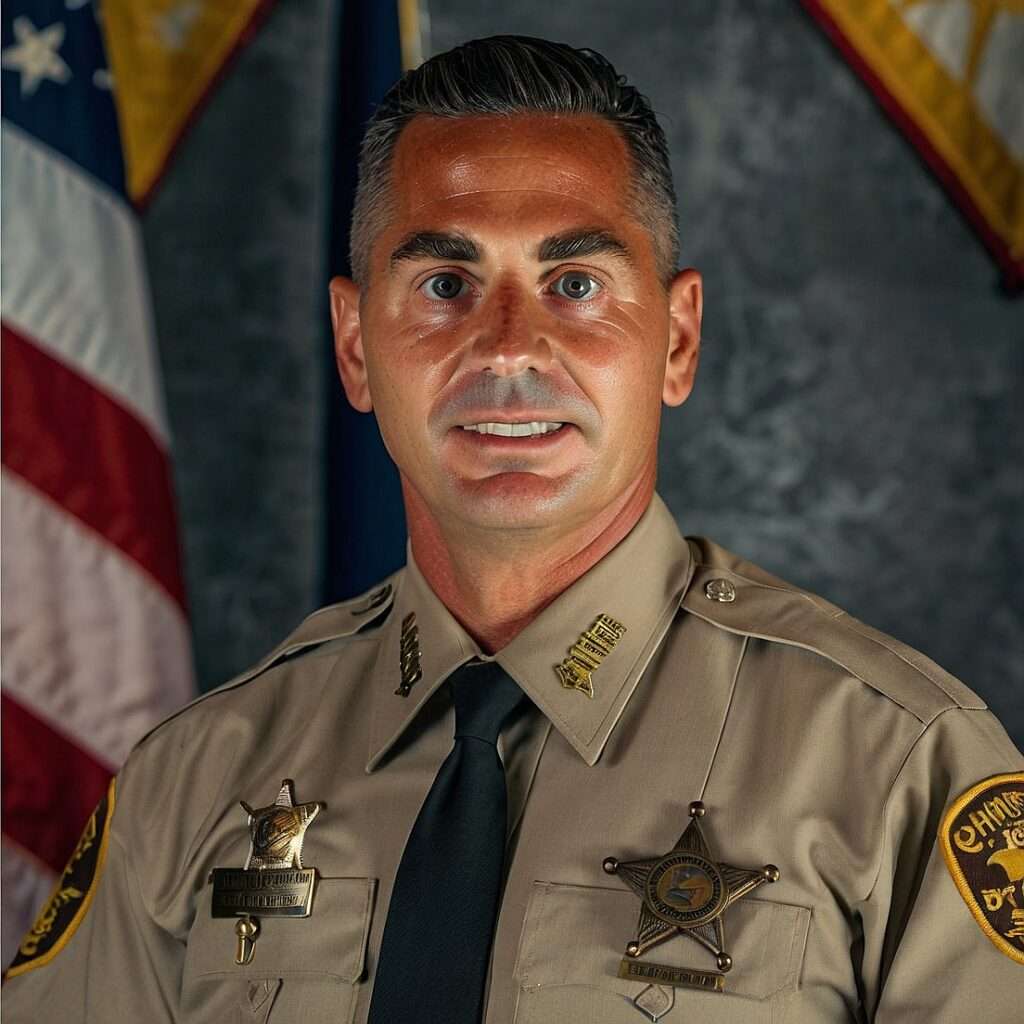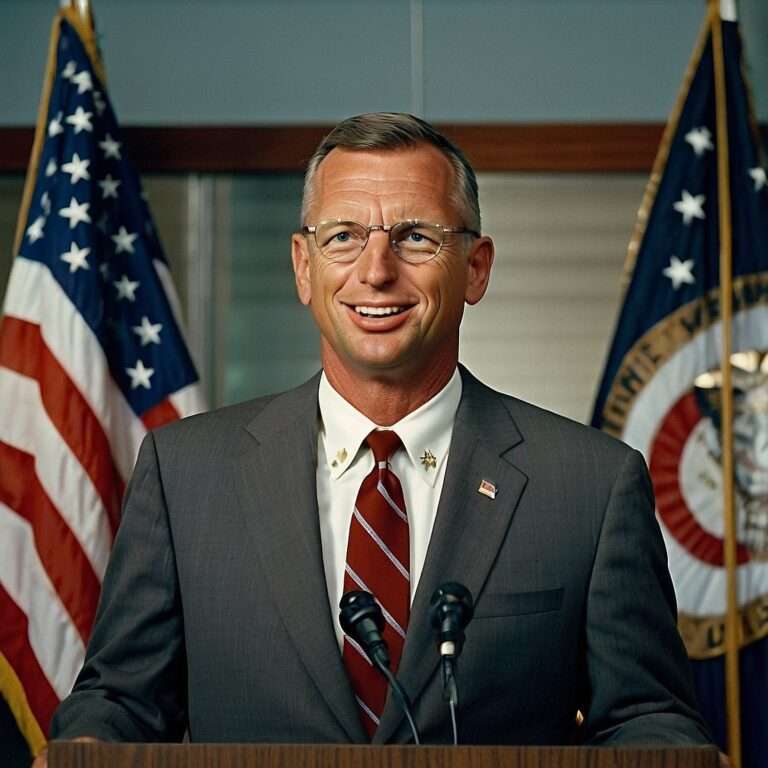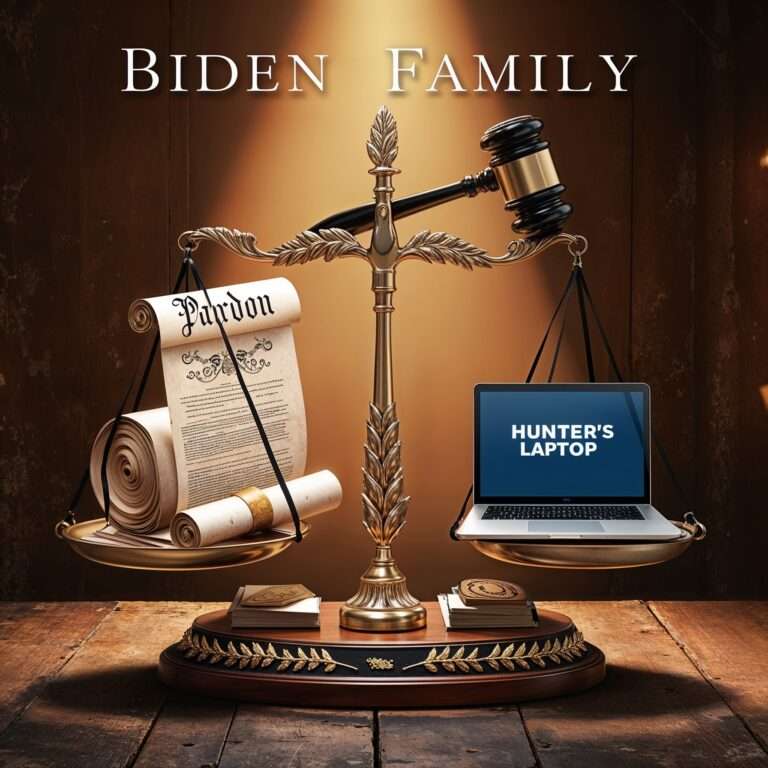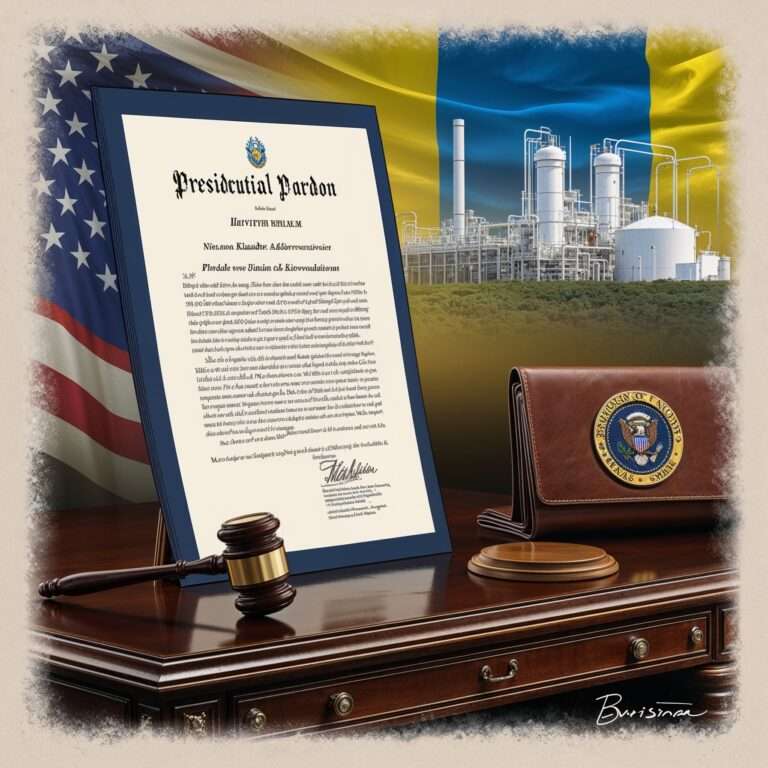
A photo of Hillsborough County Sheriff Chad Chronister, standing at a podium during a press conference, discussing law enforcement initiatives. The image reflects his public role and leadership as a law enforcement officer.
The Chad Chronister DEA nomination highlights how the selection process for high-level government roles often uncovers not just a candidate’s qualifications but also their controversies. Sheriff of Hillsborough County, Florida, Chronister was briefly considered for the position of Administrator of the Drug Enforcement Administration (DEA) under Donald Trump’s second-term Cabinet. However, the Chad Chronister DEA nomination ended abruptly amidst growing public scrutiny and political backlash, much of it stemming from his controversial actions during the COVID-19 pandemic. This article examines why Chad Chronister was considered for the DEA role, the controversies that defined his candidacy, and the factors that ultimately led to his withdrawal.
Why Was Chad Chronister Considered?
Chad Chronister has built a reputation as a career law enforcement officer. Appointed Sheriff of Hillsborough County in 2017, he was subsequently elected to the position, serving as a Republican in a politically diverse area. Chronister’s law enforcement policies and community-focused initiatives earned him recognition, making him a potential candidate for the DEA Administrator role in Donald Trump’s second-term Cabinet.
As a law enforcement leader, Chronister emphasized tackling drug-related crimes in Florida, a state heavily impacted by the opioid epidemic. His public stance on enhancing drug enforcement strategies aligned with priorities for the DEA, a federal agency tasked with combating drug trafficking and abuse.
However, Chronister’s legacy is far from spotless. His record during the COVID-19 pandemic, in particular, brought intense criticism and left a lasting impact on his reputation.
The COVID-19 Controversies
One of the defining moments of Chad Chronister’s tenure as sheriff was his enforcement of pandemic-related restrictions. During the early months of COVID-19, when lockdowns and public health orders were contentious, Chronister made national headlines for arresting Pastor Rodney Howard-Browne of The River Church in Tampa Bay. Howard-Browne had refused to comply with lockdown measures, continuing to hold large in-person church gatherings. Chronister justified the arrest as a necessary step to protect public health, stating, “No one is above the law.”
While some praised Chronister for prioritizing community safety, others saw the move as a violation of religious freedoms and an overreach of authority. Conservative groups heavily criticized the arrest, portraying Chronister as an enforcer of draconian measures that infringed on constitutional rights.
Similarly, Chronister’s enforcement actions extended to beachgoers and individuals who violated social distancing rules. Dozens of citations were issued, and arrests were made as part of an effort to curtail the spread of COVID-19. Critics argued that these measures disproportionately targeted individuals engaging in low-risk outdoor activities, painting Chronister as a symbol of heavy-handed pandemic enforcement.
How Public Scrutiny Played a Role
The controversies surrounding Chronister’s actions during COVID-19 likely influenced his decision to withdraw from consideration for the DEA nomination. Public backlash against his enforcement of lockdown orders resurfaced as news of his potential appointment broke. Conservative commentators and right-wing media outlets reignited discussions about his record, portraying him as a liability for a Trump administration focused on rebuilding trust with its voter base.
Public Perception and Political Calculations
Chronister’s nomination raised questions about whether his enforcement record aligned with the values of the Republican Party’s base, which often emphasizes limited government and personal freedoms. By accepting the nomination, Chronister may have risked becoming a focal point for criticism not just from Democrats but also from his party’s core supporters.
The public scrutiny tied to his pandemic actions was compounded by ongoing debates about federal overreach and the role of law enforcement. For a position as sensitive as DEA Administrator—an agency often in the spotlight for controversial drug policies—Chronister’s polarizing record could have hindered his ability to lead effectively.
Other Potential Reasons for Chad Chronister DEA nomination Withdrawal
Beyond public criticism, other factors may have influenced Chad Chronister’s decision to step back from the nomination:
- Lack of Support in Law Enforcement Circles
Some within the law enforcement community viewed Chronister’s handling of COVID-19 restrictions as inconsistent with the principles of community policing. His nomination risked alienating key stakeholders in the DEA and broader law enforcement networks, potentially complicating his ability to lead a national agency. - Intense Vetting Process
The process of being nominated for a federal position involves thorough vetting, including an examination of public records, past decisions, and media coverage. Chronister’s pandemic-related controversies likely raised red flags during this process, signaling that his nomination would face significant hurdles in Senate confirmation hearings. - Strategic Withdrawal to Avoid Further Damage
By withdrawing early, Chronister may have sought to protect his reputation and future political ambitions. A prolonged nomination battle could have amplified negative coverage, impacting not just his career but also the broader Trump administration agenda. - Focus on Local Leadership
Chronister may have ultimately decided that his impact as Sheriff of Hillsborough County outweighed the risks and challenges of stepping into a federal role. Remaining in his current position allows him to maintain a degree of influence without the heightened scrutiny associated with federal appointments.
The Bigger Picture: Lessons from the Chad Chronister DEA Nomination
The saga of Chad Chronister’s brief consideration for DEA Administrator underscores the complexities of political appointments. While his law enforcement experience made him a viable candidate on paper, his record during the COVID-19 pandemic highlighted the importance of public perception and alignment with the values of the administration.
For the Trump administration, this episode serves as a reminder of the challenges in balancing loyalty, qualifications, and public opinion when selecting nominees. For Chronister, the experience may offer valuable lessons about the enduring impact of controversial decisions and the importance of navigating public scrutiny in the digital age.
Conclusion
The Chad Chronister DEA nomination was a fleeting yet revealing chapter in the lead-up to Donald Trump’s second term. While his qualifications as a law enforcement leader were clear, the controversies surrounding his actions during the COVID-19 pandemic ultimately overshadowed his candidacy. By stepping back from the nomination, Chronister avoided a potentially bruising confirmation process, but his legacy remains a topic of debate. For policymakers and public figures alike, this episode underscores the delicate interplay between leadership, accountability, and public perception in the modern political landscape.
DARWIN’s Take: Chad Chronister DEA Nomination—A Case Study in Overreach and Image Management
Chad Chronister’s nomination for DEA Administrator exposes a harsh reality. In politics, qualifications matter less than optics and timing.
As Hillsborough County Sheriff, Chronister balanced community engagement with strict enforcement. However, his pandemic-era actions sparked backlash and controversy. Arresting a pastor for defying lockdowns drew praise from some but accusations of overreach from others.
Public trust fractured further as his COVID-19 restrictions targeted everyday activities, like social gatherings and beach visits. These actions, framed as necessary, left many questioning his priorities.
With rising scrutiny, his withdrawal was inevitable. Politically, it was a strategic retreat. Personally, it was a reminder of how quickly leaders are abandoned when optics turn against them.
DARWIN’s prophecy: Leaders enforcing compliance are praised until they threaten their own base. In this political theater, no one truly wins.
Recommended Reading on Paranoid Prophet
Explore these related articles from our Politics category to dive deeper into the themes of national division and political dynamics in the U.S.:
- Trump’s Rally Record: How His Campaigns Stack Up Against Other U.S. Politicians’ Rallies
Discover how political rallies shape public opinion and contribute to national unity or division. - What to Expect: Trump’s Likely Moves from Election Win to Inauguration
Analyze the strategies and implications of political maneuvers during transitional periods. - Pete Hegseth as Secretary of Defense: How His Leadership Could Reshape the Pentagon
Explore Pete Hegseth’s potential appointment as Secretary of Defense, his military background, and its implications for veterans’ care and defense policies. - Trump Tariffs for Mexico and Canada
Explore the economic and political impacts of Trump’s proposed 25% tariffs on Mexico and Canada. Learn how these tariffs could reshape trade dynamics, pricing, and North American manufacturing. - Trump’s Second-Term Cabinet Picks: The Team Shaping His New Administration
An analysis of the political dynamics and implications of cabinet appointments, offering insights into the environment RFK Jr. would navigate as a potential Health Secretary.
Sources
- New York Post: “Trump’s DEA pick – who locked up a pastor during COVID-19 pandemic – withdraws from consideration after conservative backlash”
This article discusses Sheriff Chad Chronister’s withdrawal from the DEA nomination, highlighting the conservative backlash he faced due to his enforcement actions during the COVID-19 pandemic, particularly the arrest of Pastor Rodney Howard-Browne. - The Wall Street Journal: “Trump Is Dealt Setback as DEA Pick Withdraws, Pentagon Choice Scrutinized”
This piece details the challenges President-elect Donald Trump faced with his administration picks, including Chad Chronister’s withdrawal and the scrutiny of other nominees. - Associated Press: “Trump’s pick to run the DEA withdraws his name from consideration. Trump says he pulled the plug”
This report covers Chad Chronister’s withdrawal from the DEA nomination, noting that President-elect Trump claimed responsibility for the decision due to disagreements with his supporters. - The Australian: “DeSantis back in frame as Hegseth allegations start to hurt”
This article mentions Chad Chronister’s withdrawal from the DEA nomination while discussing the broader context of Trump’s administration appointments. .
FAQ: Chad Chronister DEA Nomination
General Information
1. Who is Chad Chronister?
Chad Chronister is the Sheriff of Hillsborough County, Florida. He has served in law enforcement for over 25 years and gained recognition for his work in combating drug-related crimes and implementing community policing strategies.
2. Why was Chad Chronister considered for DEA Administrator?
Chronister’s leadership in addressing drug-related issues in Florida and his experience as a sheriff made him a potential fit for leading the DEA, which focuses on combating drug trafficking and abuse on a national scale.
3. What is the DEA Administrator’s role?
The DEA Administrator oversees the Drug Enforcement Administration, a federal agency responsible for enforcing controlled substance laws and regulations, investigating drug trafficking organizations, and reducing drug abuse in the United States.
Nomination and Withdrawal
4. When was Chad Chronister nominated for DEA Administrator?
Chad Chronister was informally announced as a contender for the role in late 2024 as part of President-elect Donald Trump’s efforts to form his second-term Cabinet.
5. Why did Chad Chronister withdraw from consideration?
Chronister faced intense scrutiny over his controversial actions during the COVID-19 pandemic, including arrests and enforcement of lockdown measures. This backlash, combined with a potentially difficult Senate confirmation process, likely influenced his decision to step down.
6. Was Chronister’s withdrawal surprising?
While Chronister was initially considered a strong candidate, his controversial enforcement record made his withdrawal less surprising in hindsight. Public and political pushback raised significant concerns about his suitability for the role.
Controversies
7. Why was Chad Chronister’s COVID-19 enforcement controversial?
Chronister gained national attention for enforcing lockdown measures, including arresting Pastor Rodney Howard-Browne for holding in-person church services and citing beachgoers for violating social distancing rules. Critics accused him of government overreach and infringing on constitutional rights.
8. How did the religious community respond to his actions?
Many conservative religious groups criticized Chronister’s arrest of Pastor Rodney Howard-Browne, viewing it as an attack on religious freedom. This incident became a key talking point for those opposing his nomination.
9. Were there other controversies during Chronister’s tenure?
While Chronister’s record includes several initiatives aimed at improving community safety, his COVID-19 actions remain the most prominent source of controversy, overshadowing other aspects of his career.
Political Implications
10. How did Chronister’s nomination impact Trump’s administration?
The backlash against Chronister highlighted the challenges the Trump administration faces in balancing loyalty and public perception when selecting nominees. His withdrawal avoided a potentially divisive confirmation battle.
11. What does Chronister’s withdrawal mean for the DEA nomination process?
With Chronister stepping down, the Trump administration will need to identify another candidate for DEA Administrator. The selection process will likely focus on avoiding similar controversies.
12. Does Chronister’s withdrawal affect his political career?
By withdrawing early, Chronister avoided prolonged scrutiny that could have further damaged his reputation. Remaining as Sheriff of Hillsborough County allows him to maintain local influence and leadership.
Future Considerations
13. Who might replace Chad Chronister as a nominee for DEA Administrator?
The Trump administration has not announced a replacement nominee yet, but the search will likely focus on a candidate with a strong law enforcement background and fewer controversies.
14. How does this controversy reflect on political nominations in general?
The incident underscores the importance of thoroughly vetting candidates for federal appointments. Public perception and past actions play a critical role in determining whether nominees can withstand the scrutiny of the confirmation process.
15. What lessons can be learned from Chad Chronister’s nomination saga?
The controversy serves as a reminder that even well-qualified candidates can face challenges if their records include divisive actions. Effective leadership requires balancing past decisions with public expectations and political realities.


